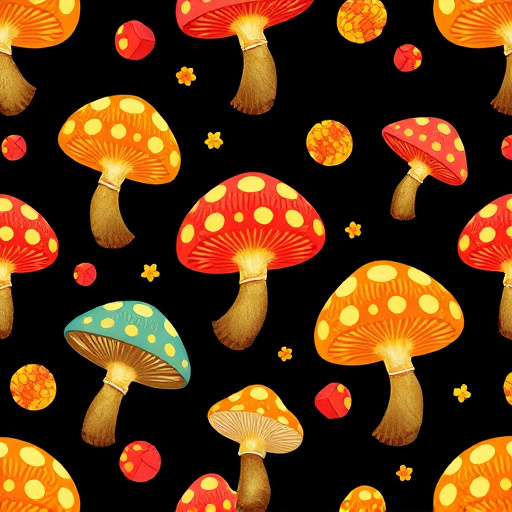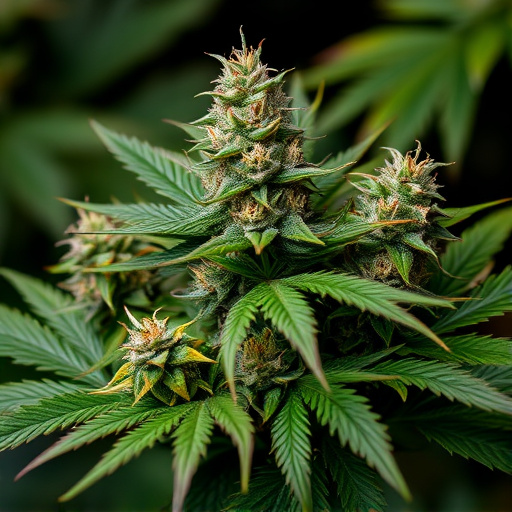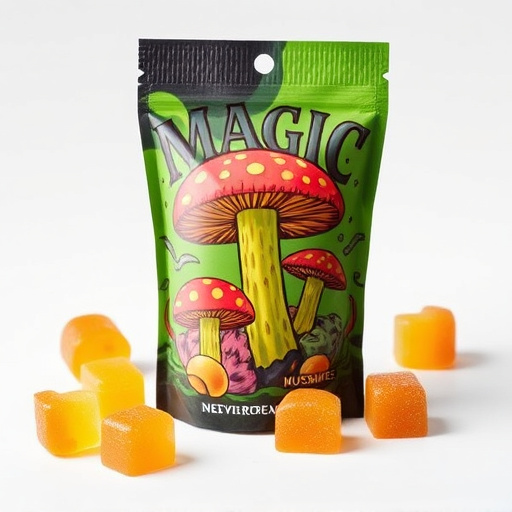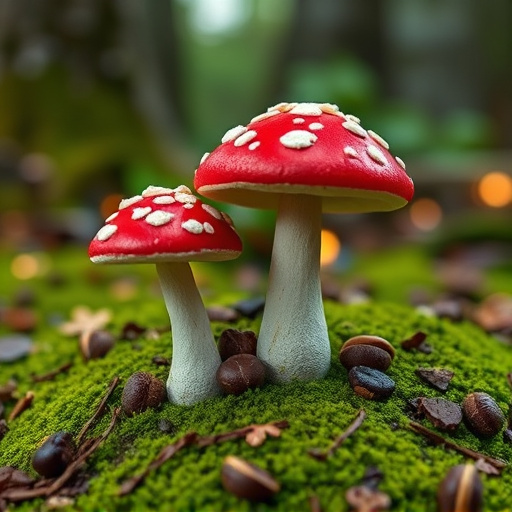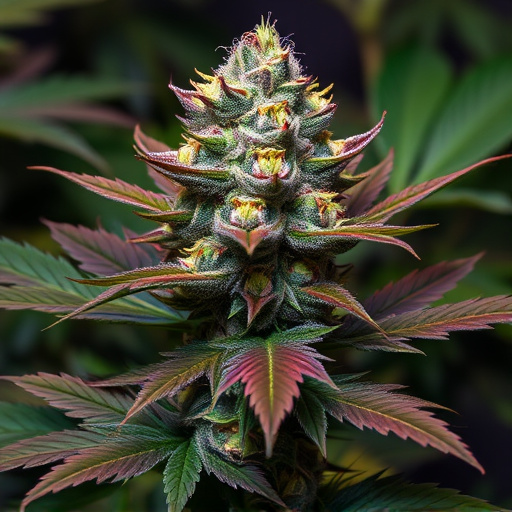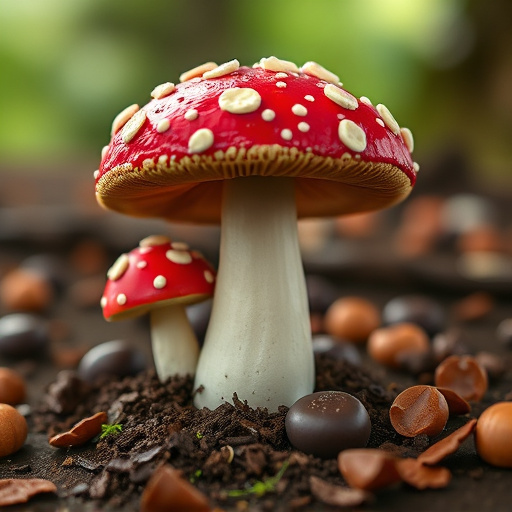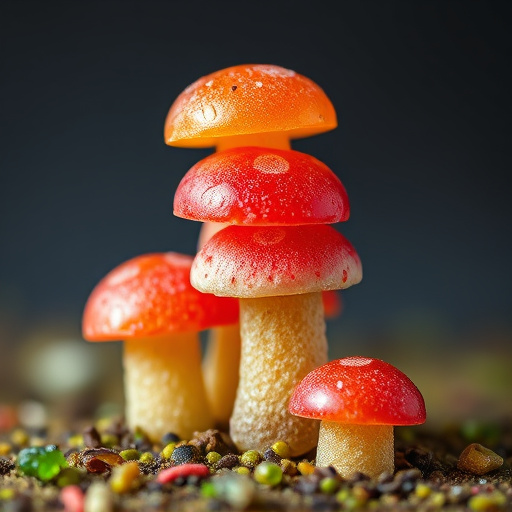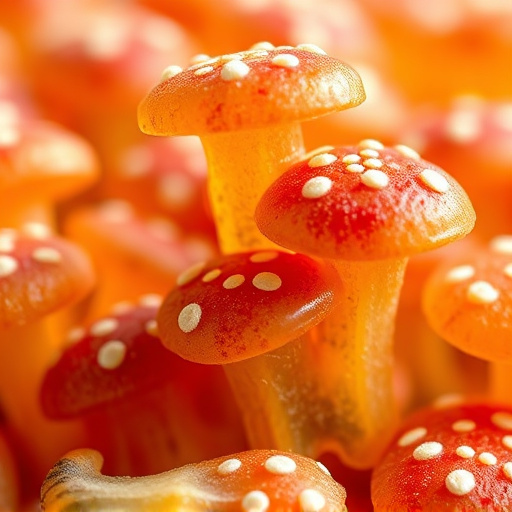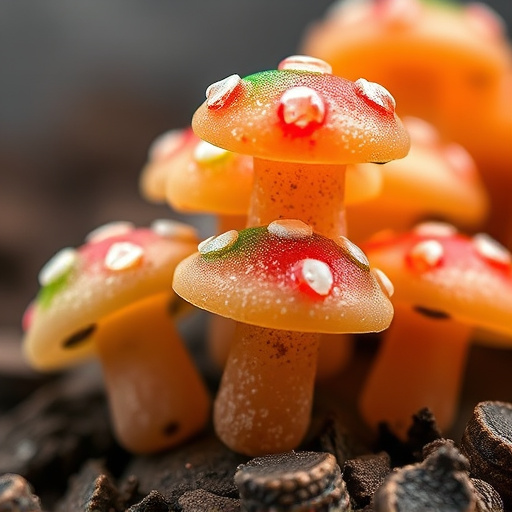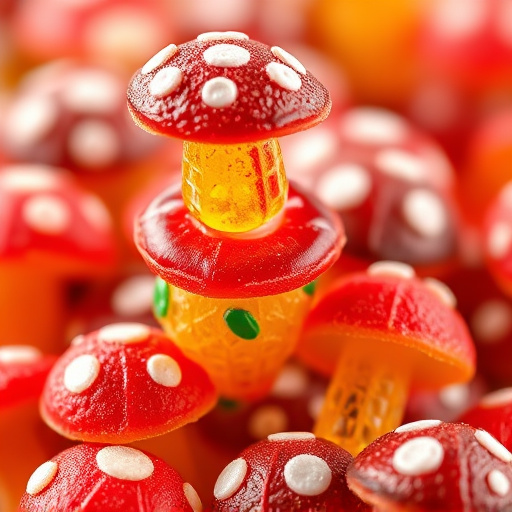Magic Mushroom Gummies, derived from psilocybin mushrooms, interact with brain serotonin receptors, triggering a surge in dopamine release, leading to altered perceptions, heightened pleasure, and emotional experiences. This interaction offers potential therapeutic advantages but requires controlled environments for safety due to individual variations in brain chemistry. Regular use may impact dopamine sensitivity, affecting future experiences. Understanding these Magic Mushroom Gummies and Dopamine Levels interactions is vital for navigating their effects on the mind.
Discover the profound effects of Magic Mushroom Gummies, a modern twist on traditional psychedelic experiences. This comprehensive overview explores ‘Understanding Magic Mushroom Gummies’ and delves into the intricate relationship between these treats and dopamine levels. By examining the science behind dopamine’s role in perception, we gain insights into how Magic Mushroom Gummies can alter user experiences. Uncover the potential impacts on the mind and why ‘Magic Mushroom Gummies and Dopamine Levels’ are hot topics in psychedelic research.
- Understanding Magic Mushroom Gummies: A Comprehensive Overview
- The Science Behind Dopamine and Its Role in Perception
- Exploring the Impact of Magic Mushrooms Gummies on Dopamine Levels and User Experiences
Understanding Magic Mushroom Gummies: A Comprehensive Overview
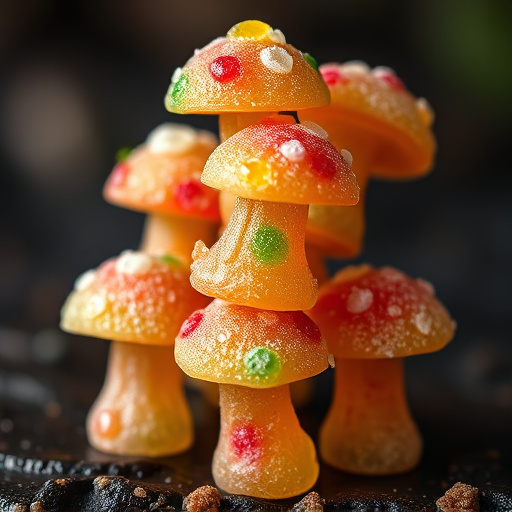
Magic Mushroom Gummies are a modern twist on traditional psychedelic experiences, offering a convenient and potentially less intimidating way to explore the effects of magic mushrooms. These gummies infuse the active compounds found in psilocybin mushrooms, typically psilocin, into a sweet, edible form. When consumed, they can elicit a range of psychological effects, often referredring to as ‘tripping,’ which can vary greatly depending on factors like dose, setting, and individual sensitivity.
One of the key aspects that sets Magic Mushroom Gummies apart is their ability to influence dopamine levels in the brain. Dopamine is a neurotransmitter associated with pleasure, reward, motivation, and cognitive functions. Psilocin, the active compound in magic mushrooms, acts as a partial serotonin 2A (5-HT2A) receptor agonist, which means it can interact with these receptors in the brain, leading to changes in perception, mood, and cognition. This interaction may result in heightened dopamine release, contributing to the intense emotional experiences and euphoria often associated with psychedelic trips. Understanding this mechanism is crucial for anyone considering the use of Magic Mushroom Gummies, as it highlights both potential therapeutic benefits and the need for a safe, controlled environment.
The Science Behind Dopamine and Its Role in Perception
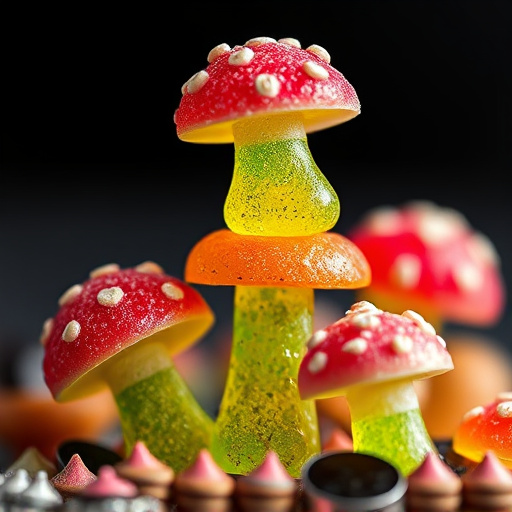
The human brain’s intricate chemistry plays a pivotal role in our perceptions, emotions, and experiences. Among the various neurotransmitters, dopamine stands out for its significant impact on reward, pleasure, motivation, and cognitive functions. When it comes to understanding the effects of magic mushroom gummies, delving into the science of dopamine is essential.
Magic mushroom gummies, derived from psilocybin mushrooms, contain compounds that can interact with the brain’s receptors, particularly those for serotonin. This interaction triggers a cascade of events, including the release of dopamine. Elevated dopamine levels contribute to the heightened sense of pleasure, euphoria, and altered perceptions often associated with magic mushroom use. Research suggests that manipulating dopamine levels through substances like psilocybin can lead to profound experiences, offering potential therapeutic benefits while emphasizing the need for controlled and supervised settings due to individual variations in brain chemistry and overall experience.
Exploring the Impact of Magic Mushrooms Gummies on Dopamine Levels and User Experiences
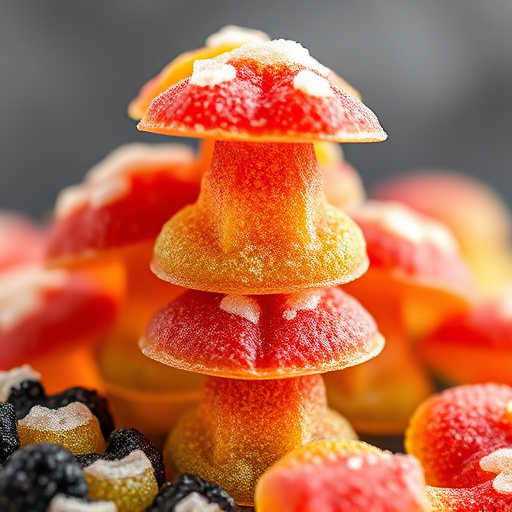
Magic mushroom gummies, like their traditional counterparts, are known for their psilocybin content, a compound that has been studied extensively for its effects on brain chemistry and user experiences. When consumed, psilocybin interacts with serotonin receptors in the brain, leading to changes in mood, perception, and consciousness. One of the key aspects that make magic mushroom gummies intriguing is their potential impact on dopamine levels.
Dopamine, a neurotransmitter associated with pleasure, reward, and motivation, plays a significant role in shaping user experiences. Research suggests that psilocybin can stimulate dopamine release, leading to intense feelings of euphoria, heightened senses, and increased creativity. This stimulation may contribute to the profound emotional highs often reported by users. Moreover, some studies indicate that regular or prolonged use of magic mushroom gummies could potentially alter dopamine sensitivity, affecting future experiences and overall brain function. Understanding these interactions is crucial in navigating the complex landscape of magic mushroom gummies’ effects on the mind.
Magic mushroom gummies, by manipulating dopamine levels through their unique interaction with the brain’s reward system, offer a wide range of potential therapeutic effects. While more research is needed, the current understanding highlights their promise in enhancing creativity, promoting emotional well-being, and aiding in mental health conditions like depression and anxiety. As with any substance, responsible use and further scientific exploration are crucial to unlocking the full potential of magic mushroom gummies while ensuring safety.
